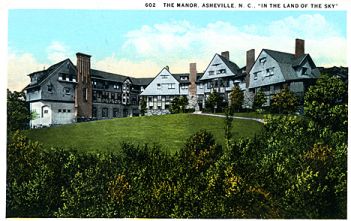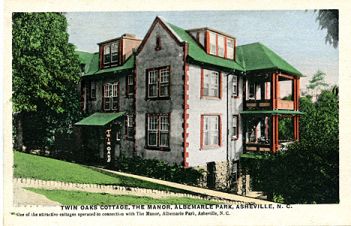Manors
Manors in England after the Norman conquest were  organized estates held by a knight, a religious body, or a certain corporation. Eventually manors were headed by feudal lords who were recognized as owners of the land and who could have tenants of varying degrees of obligation. In the provisions of the Carolina charter of
organized estates held by a knight, a religious body, or a certain corporation. Eventually manors were headed by feudal lords who were recognized as owners of the land and who could have tenants of varying degrees of obligation. In the provisions of the Carolina charter of  1663, the Lords Proprietors envisioned a feudal society based on a hereditary order of titled holders of manors and tenants. They drew up an elaborate scheme of government outlining these provisions, but preexisting conditions in Carolina and the independent spirit of the people already living there hindered its implementation. The word "manor," however, was employed for a time to define the holdings of some landowners, many of whom later probably had little understanding of the origin or meaning of the term.
1663, the Lords Proprietors envisioned a feudal society based on a hereditary order of titled holders of manors and tenants. They drew up an elaborate scheme of government outlining these provisions, but preexisting conditions in Carolina and the independent spirit of the people already living there hindered its implementation. The word "manor," however, was employed for a time to define the holdings of some landowners, many of whom later probably had little understanding of the origin or meaning of the term.
In his 1728 will, Francis Leydon of Albemarle County directed that when his son, William, came into possession of the "manor," he should pay £10 to each of his three younger brothers who inherited parcels of land. It was Leydon's intention that this estate would remain in the family forever. Over the decades, countless other wills and inventories of estates used the term "manor" in one form or another. John Maule of Beaufort County used the form "mannor plantation" in his will dated 11 Dec. 1773-110 years after the Carolina charter employed the term.
References:
J. Bryan Grimes, ed., North Carolina Wills and Inventories (1912).
Mattie Erma Edwards Parker, ed., North Carolina Charters and Constitutions, 1578-1698 (1963).
Additional Resources:
Secrets of a Manor House: http://www.pbs.org/programs/secrets-manor-house/
UK National Archives Guide to further research on Manors: http://www.nationalarchives.gov.uk/records/research-guides/manorial-records.htm
Francis Leydon's Will, North Carolina Department of Cultural Resources Digital Collections.
John Maule's Will, North Carolina Department of Cultural Resources Digital Collections.
https://www.flickr.com/photos/north-carolina-state-archives/4818354347/
Image Credit:
"Twin Oaks Cottage, The Manor, Albemarle Park, Asheville, NC ""one of the attractive cottages operatedin connection with The Manor, Albemarle park, Asheville, NC published by the Asheville Post Card Co., Asheville, NC." From the Georgia Historical Society Postcard Collection, c. 1905-1960s, PhC.45, North Carolina State Archives, call #: PhC45_1_Ash135, Raleigh, NC. Available from https://www.flickr.com/photos/north-carolina-state-archives/4818354347/ (accessed July 12, 2012).
"602 The Manor, Asheville, NC ""In the Land of the Sky"" published by the Asheville Post Card Co., Asheville, NC." From the Georgia Historical Society Postcard Collection, c. 1905-1960s, PhC.45, North Carolina State Archives, call #: PhC45_1_Ash134, Raleigh, NC. Available from https://www.flickr.com/photos/north-carolina-state-archives/4818975644/ (accessed July 12, 2012).
1 January 2006 | Powell, William S.